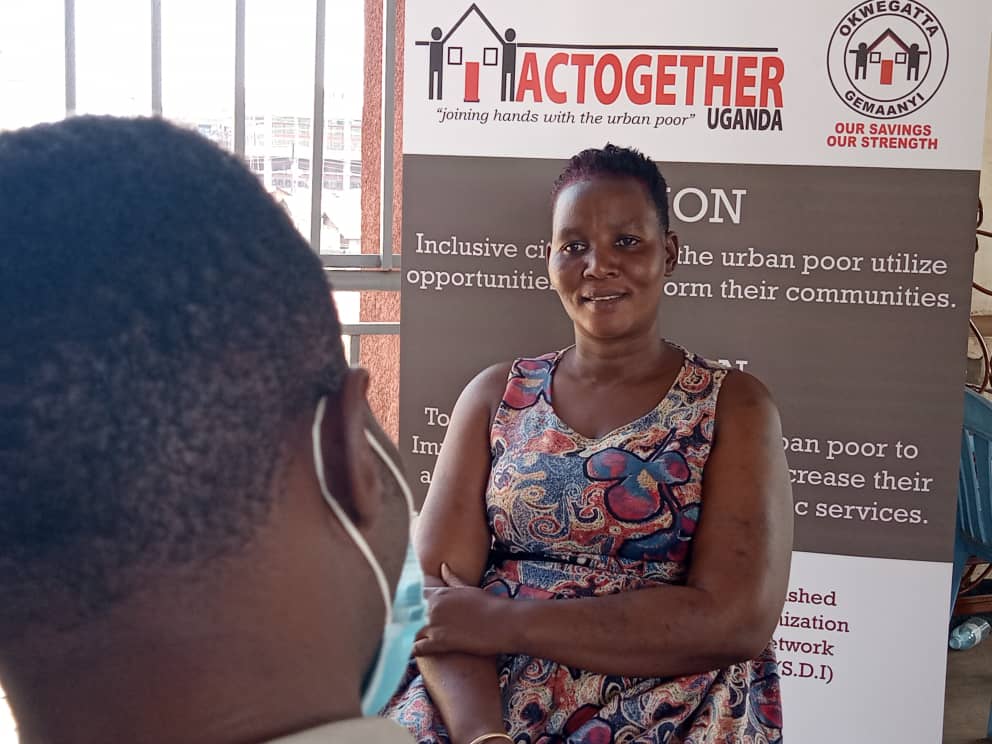Access to sexual and reproductive health and rights (SRHR) is a fundamental human right that is often denied to young people in Kampala’s urban informal settlements. These young people face multiple barriers to accessing SRHR services, such as poverty, stigma, discrimination, violence, and lack of information. These barriers increase their vulnerability to unwanted pregnancies, sexually transmitted infections (STIs), HIV/AIDS, unsafe abortions, and gender-based violence. As part of the safe and inclusive cities project, ACTogether Uganda through the Ministry of health adolescent health department organized a week-long peer educator training in sexual reproductive health rights.
The peer educator approach involves training young people to provide accurate and non-judgmental information and support to their peers on sexual reproductive health and rights (SRHR) issues in order to strengthen access to SRHR services and support young people to make informed decisions about their bodies, sexuality, and the future.
Peer educators are expected to act as role models, mentors, advocates, and referral sources for young people, who face barriers in accessing SRHR services and to challenge harmful social/gender norms and practices that affect their well-being.
Byabagambe Shuraimu a trainee and peer educator from Mutungo says that many young people struggle with a lot of myths related to sexual health in their communities and often this misleads them into problems like teenage pregnancy, unsafe abortion, and sexually transmitted infections/diseases among others.
Photo by Francis Mawejje: Byabagambe Shuraimu making a presentation during the peer training on SRHR at YES center Nsambya.
In urban informal settlements, sexual violence has been on the rise in the last 3 years according to the annual police crime reports. This indicates that young people in Kampala’s slums are exposed to high risks of unwanted pregnancies, sexually transmitted infections (STIs), and gender-based violence (GBV), which leaves serious consequences for their health and rights and depicts a number of gaps in the SRHR.
“As a teenage mother, I am scared of conceiving again and for this reason, I went to the health center to get the family planning of my choice but unfortunately, it was out of stock and I was referred to a private pharmacy where I was asked to pay 20,000/= Uganda shillings which I did not have but remember I stay with my boyfriend and any time I might get another unplanned pregnancy.” – Sandra Nabwiire, peer educator- Kibuli.
Therefore, it is important to address the sexual and reproductive health needs and rights of young people in slum areas of Kampala, by providing them with comprehensive and accurate information, education, and counseling; ensuring their access to affordable and quality contraceptive services and family planning; promoting the prevention and treatment of STIs; respecting their sexual consent as a right; preventing and responding to GBV; and supporting their HIV testing, disclosure, and care, pregnancy and post-partum care.
“This training has answered some of the troubling questions that I was experiencing in the community from my peers, this was on the myth that when one takes paracetamol with Cocacola the HIV test always comes out negative- this is wrong according to what the doctors have taught us and when I go back to the community, I am going to ensure that I sensitize my peers.” Auma Grace Priscilla, peer educator – Kagugube.
To achieve these goals, a holistic and harmonized approach that takes into account the local socio-cultural contexts and the relationship between the health of young people and their environs is urgently needed. Furthermore, the participation and empowerment of young people themselves is crucial for ensuring that their voices are heard and their rights are respected.

Photo by Francis Mawejje: Uganda Cares conducting an HIV testing outreach in Nakulabye Lubaga Division
“I am glad to have attended this training because it tackled some of the public health challenges that slum dwellers experience. With the peer educators implementing what they have learned, I am certain that there will be a positive impact on the community.” Najjuuko Diana – National Slum Dwellers’ Federation of Uganda.

Photo by Jimmy Kanonya: Ms. Najjuuko Diana sharing her highlights in an interview conducted by the ACTogether staff
ACTogether Uganda under the Safe and Inclusive Cities project plans to support the 36 peer educators trained to cascade the SRHR training using the Ministry of Health adolescent health manual and the champions of change for gender equality methodology to reach over 400 young people in Kampala’s informal settlements in 2023.
Story written by Francis Mawejje




